Fall
“SEEING WHAT IS RIGHT IN FRONT OF YOU: Reflections on the Self”
By David DeBole
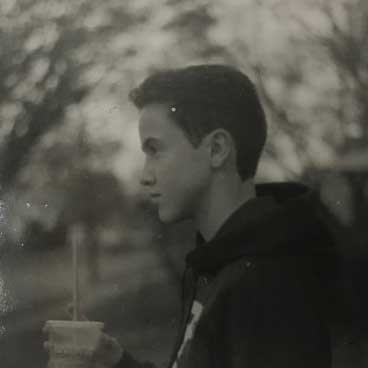
One must understand the Self, first, in the context of the situation we find ourselves in. We have all been thrown into our own existence, and we are all leading towards the same end: Death. Due to the ultimate uncertainty of our existence, we can also make no claims of objectivity without also putting faith in a God that is guiding the Self to a certain fixed essence through time. Such faith, though helpful for some, is deleterious to the genuine, day-to-day experience of the Self, that what I call the intimate self. The Intimate Self is that which is constantly present and constantly able, if it admits to the ultimate subjectivity that comes with time and the ultimate realness of the world, to create new ideas, to invent new ways of looking at the world, and to spur up new passions and interests in the world which exists. However, there are obstacles that get in the way of one’s consciousness seeing that the intimate self is there and that creation of the new is possible. These obstacles are fundamental to existence as well: we go through time and attempt to come up with some sort of way of describing ourselves that can capture our essence, but these efforts always fail; we are social beings that change our behaviors and identity to fit our many roles and what is considered normal as well as contribute to what is normal; we are bodies that, when thrusted toward something, act through engrained and thoughtless habits; we are beings with an Ego that has to be thrusted toward something, and when guided by a body and thus a Self in despair, will look not to the world for meaning, but to a rejection of the world for meaning. What makes it all worse is that those other beings in existence with the intimate self, though they are intimate selves too, cannot recognize you as the intimate self you are. You are invisible to them, as they, like you, are beings in the present thrusting toward the future. I claim in my paper that it is the longing for existence that, when properly channeled, can begin the process to see the Self not as a thing to be aspired to, but something that is right now, with many things shaping how it sees itself. By doing that, one can properly label as good those things which give one the most freedom as an intimate self and bad those things which make one revolt against life.
“The Duty of an Off-Duty Physician”
By Rushil Chandra

Should doctors intervene outside of the hospital when they are off-duty? A doctor should be held to standards above other professions and should understand the obligation and duty they have, regardless of whether they are working or not. A doctor is the only one with the knowledge and the experience to give the proper treatment or give the proper call on what needs to be done, in order to enact the least bit of harm on the patient. A huge problem that doctors tend to deal with is burnout on their end which ends up having an effect on the care of the person in need. I believe that doctors have a conditional obligation to help those in need outside of the hospital, if the doctor feels they are capable of dealing with the situation.
“I am not X: Border Identities and the Emergence of a New Self”
By Lexus Davis
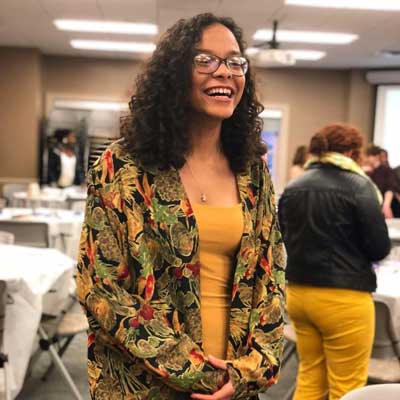
Border identities emerge as the result of physically living at the border, or crossing the border. But border identities hold also a metaphorical meaning: the borders that cross us and divide us into distinct categories such as gender, race, socioeconomic status, religion, etc. Through the examination of Gloria Anzaldúa’s work, I claim that we can cross borders both physically and metaphorically in search of a new self that does not deny the contradictions and plurality inherent to one’s identity. Using the US-Mexico border as the main case-study, I further claim that political resistance allows us to use violent conditions as grounds for creating an autonomous, new self.
“Instigating Peace: Conflict Transformation and Social Responsibility”
By Zachary Hermann
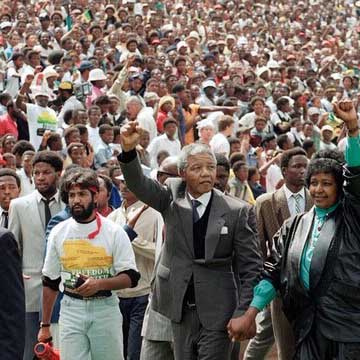
Peacebuilding has given rise to different theories that attempt to envision how we can escape cycles of violence and hatred. I examine two different approaches to peacebuilding, Iris Young’s social connections model with its notion of collective responsibility and Johan Galtung’s conflict transformation model. I examine key writings and speeches of Martin Luther King Jr. and Nelson Mandela to explore tensions in peacebuilding theories over “intense peacemaking” that involves confrontation, resistance, the breaking of social structures and the repudiation of unjust laws, as well as puzzles over how to create positive peace in the wake of “intense peacemaking.” I argue that resolving this tension, as King and Mandela struggled to do in different ways, is the key to successful non-violent social movements and provides insight into residual conflict in the aftermath of peacebuilding.
“Interconnectedness, Interdependence and Oneness: Love as the Universal Moral Standard”
By Mattelyn Wadley
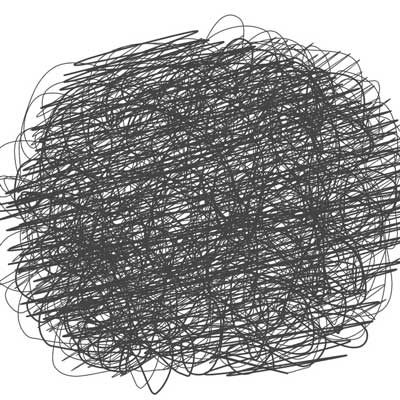
Can we have a universal moral standard in a globalized world still so divided by class, culture, race, religion, and region? I propose that ‘Love’ is that which transcends these boundaries. In this context, however, Love should not be thought of as our typical understanding of ‘romantic,’ nor even ‘familial’ love. Instead, my definition of Love is grounded in a theory of relationality, of interconnectedness and, further, of interdependence. This proposal of Love as the universal moral standard is grounded within Benedict Spinoza’s theory of substance monism as a rendition of the oneness hypothesis similar to the notion of primordial qi found within classic Chinese texts. Within these two philosophical traditions we begin to recognize our profound connection to, and deep reliance on, all else. These philosophies of oneness diminish the boundaries which currently carve up our lived- experiences; these boundaries which situate the self in a dichotomous relationship of “us versus them.” Simply put, from our shared ancestry of this primordial cause— God, Nature, or the Dao— I argue that we realize a kindred relationship with all the other beings of our cosmos.
Spring
“How a Bystander Ought to Intervene in Cases of Severe Pattern Based Relational Aggression”
By Benjamin Boucher
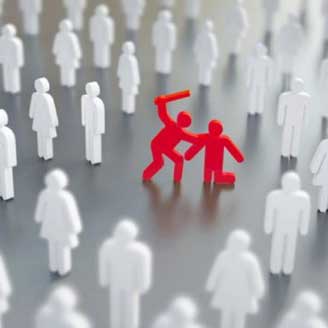
In order to determine how one ought to intervene in cases of severe pattern based relational aggression, it was first shown that both deontological and consequentialist ethics provide an important perspective to view the situation but are too flawed for either to be the sole perspective. It was then shown that inaction is an ethical choice and that ethical actors are responsible for all consequences of their choices even if they chose the best ethical path. Judgement is responsible for weighing these consequences as well as duties while practical wisdom provides the tools to do so. The second chapter discusses justice as well as how who the bystander is changes their pursuit of justice. The third chapter discusses the aggressor as being a potential victim and the pursuit of rehabilitation for the aggressor as well as less ideal responses which do not take into account the well-being of the aggressor. The continued necessity of the bystander’s judgement to determine the best course of action shows that there is an ethical duty to.
“Understanding heroin addiction: influencing factors, autonomy, stigma, and ethical treatment”
By Colton Hott
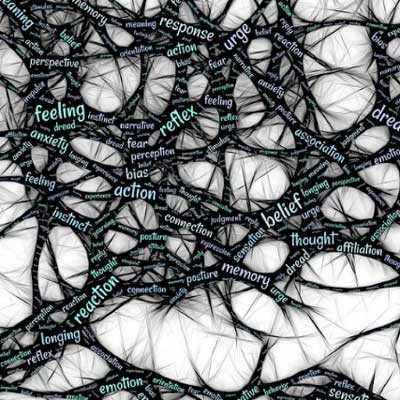
This paper explores neuroscientific, environmental, and social factors that can lead to addiction. Heroin addiction is explicated through neuroscience, highlighting addiction through a brain-based lens. Differing views on a brain-based model of addiction are considered, with the cognitive deficits model being the primary proponent of understanding heroin addiction. Nonetheless, the science is not the full scope of heroin addiction, as issues of environment and society can influence addictive behavior. From understanding these factors, problems of autonomy are elucidated insofar as to how autonomy may be compromised in the face of addiction, in addition to problems addicts face in choice-making. The negative societal role of stigma and its history through the moral model of addiction is expounded, and how it may perpetuate heroin addiction. Considering these notions, how should we treat the opioid crisis? Examples of Portugal, Switzerland, Canada, and Ohio serve as models for adopting a positive public policy to combat the opioid crisis. I adopt a utilitarian perspective on understanding heroin addiction and how it should be ethically treated. Societal stigma is morally wrong, not the actions of the addict—societal acceptance and connection is paramount to combatting the opioid crisis and helping addicts recover.
“Being and Becoming: An Exploration of the Process Philosophy of Albert North Whitehead”
By Jianrui Li
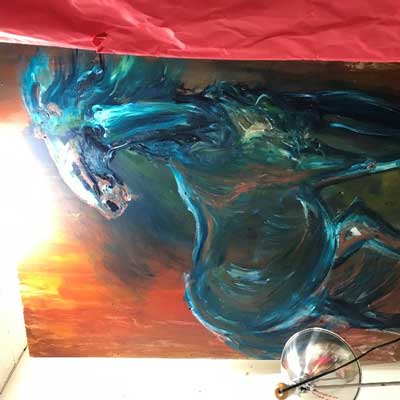
Investigating the question of being/existence/ov/存在 is a continuing concern within philosophy. In the history of Western philosophy, metaphysics has concerned itself with the question of being and its relation to becoming. Whereas Aristotle’s metaphysics (or “first philosophy”) was concerned with unchanging first principles or substances, Albert North Whitehead's process philosophy proposed a series of new philosophical views and principles that provoked contemporary Western philosophy to achieve a “process turn.” I argue that substance and process are incompatible, because substance philosophy thinks being should be understood as an unchangeable substance and process philosophy thinks being is always changing and becoming. Only a rich account of our existence as process can provide the common ground for knowledge that has long been the promise of philosophy.
“Changing Oneself: Comparing Relational Models of Selfhood to Find the Inner Location of Change”
By Dylan Prazak
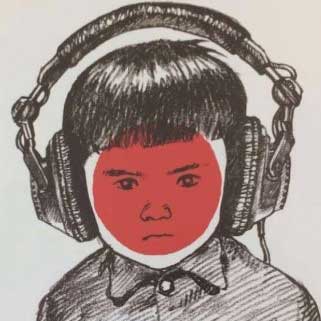
How can I change myself? This is the question motivating my thesis. To better understand the relationship between the self and change I examine the qualities of two contemporary models of selfhood: ‘Dasein’ from Martin Heidegger’s seminal work Being and Time, as well as the ‘Body Without Organs’ from Gilles Deleuze and Felix Guattari’s essays of the same title. Both models develop the self as largely constituted by our relationship to things and others in the world at hand, though the two examinations diverge while addressing themes of purpose, authenticity, and desire. Through a comparative analysis and critiques of each model for interpreting the self, a method of how to affectively change arises as our relationship with desire regulation is understood
“Language and Identity - or, Why I Keep Saying Language Is Fake”
By Leigh Richard
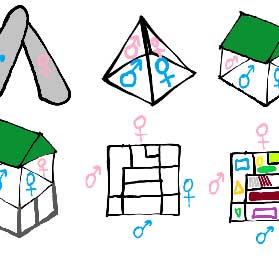
My thesis explores the importance of the flexibility of language in identifying oneself to the self and to others, framed especially through the window of gender. Language is a tool of revolution and an imperative part of the realization of social change. But social experience also informs the evolution of language. Neither societal perspective nor linguistic motion is solely responsible for the development of the other; they must grow in tandem. While this thesis attempts to draw on stories and information from numerous cultures and over a great span of history, it is still written from the perspective of a 21st century white American who has not had the experience of some of the peoples described. Language does indeed have its limitations, even in the structure of its sentences there color the speaker’s perception of the world. This thesis argues, however, that a human being may have experiences that transcend what can be described in words. This is where anecdotes across time and culture become important to the proof of the existence of transgender and nonbinary people and the impact that accessible language has on their lives and the lives of all around them.
“Social Media and the Self: A Call for Digital Dualism”
By Kara Robertson
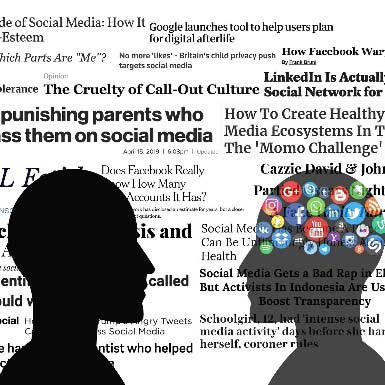
Social media cannot be said to be a part of the self. Presented as a refutation of Nathan Jurgenson’s IRL Fetish, I explore the need for a distinction between the versions of self that exist in the offline world and social media. Jurgenson claims that social media has become buried so deeply in our consciousness that it can no longer be said to be a separate entity from who we are, but this does not seem to be sufficient enough evidence to be part of the self as a whole. Through the work of various philosophers, four spheres of self will be established: the embodied; characteristics, beliefs, and personality; social; and an ultimate death. The need for proper orientation of these pieces of self will be discussed before demonstrating the disorganization process the self goes through when it is put into the entirely different ecological realm of the online world that increases one’s potency. This change reorients the individual, morphing the focus of their being to their social self. Greater attention on the social self leads to consequences such as virality and call-out culture. Ultimately, it will be demonstrated that the self existing on social media is a decontextualized, diminished version of the offline self, not a part of the offline self.